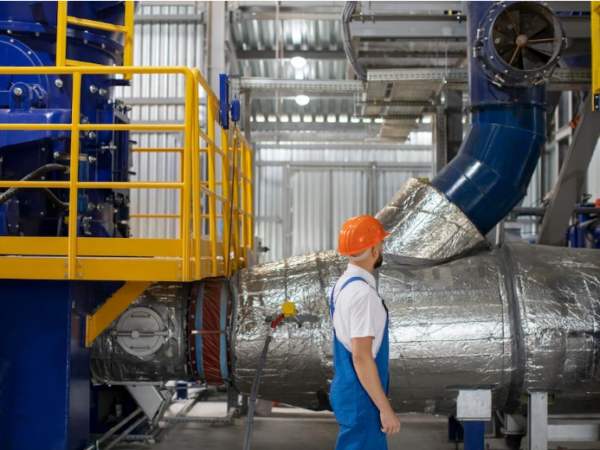In our daily life, the two most unwanted friends we find everywhere are dirt and dust. For an optimum level of hygiene, it is important to flush out all these polluted particles. When it comes to industries, it is a daunting task to remove unwanted particles. Filter bags can remove gases or liquid dust in industries ranging from food processing to cement plants, ensuring high air quality and operational efficiency. Here is a comprehensive guide about filtration bags, their cleaning mechanism, applications, and benefits in industries.
What Are Industrial Filter Bags?
Filter bags are handy fabric equipment designed with different materials such as polyester, polypropylene, nylon, or Nomex, based on their application. They trap contaminants and impurities, preventing them from entering your systems and causing damage in a variety of industrial processes. To ensure maximum effectiveness and longevity, it is important to select the right filter bag. Whether you require a filter bag for food processing, petrochemicals, or other industries, you should buy them from a company that has years of experience in producing filtration products.
Different Kinds of Filter Bags
Industrial filter bags come in different types for a range of applications, from wastewater treatment to food processing to pharmaceuticals. Filter bags can also handle adhesives, chemicals, coil coatings, paints, oils, pigments, and more. To trap fine particles and achieve in-depth filtration, felt filter bags are suitable. Woven filter bags are an ideal choice for surface filtration and are easy to clean. For high-temperature industrial processes, such as those in cement plants, specific filter bags are designed to withstand extreme heat. Liquid filter bags are commonly used in the food and beverage industries.
Applications of Filter Bags in Industry
Filter bags perform their role in primary industries such as transport, metal, waste disposal, manufacturing, and energy. They filter harmful microparticles and fly ash to increase the efficiency of filter vessels while delivering high-quality output. Filter bags are also used for the processing of non-metallic and ferrous materials. In waste disposal, they filter toxic particles for thorough cleaning. In manufacturing, energy industries, and mills, they are applied in several areas.
Benefits of Using Filter Bags
Filter bags are highly durable if designed with the right materials. They are a cost-effective solution that requires minimal investment but returns high industrial output and production rates. Their cleaning mechanism is quick and efficient, collecting dust and filtering unwanted particles to prevent mechanical issues. They withstand tremendous wear and tear in heavy machinery operations and extreme heat, but they can remain in good condition with minimal upkeep.
Choosing the Right Filter Bag
The most important factor is selecting the right bag, because the correct choice can make or break the efficiency of your industrial processes. When buying, you should consider factors such as particle size, ratings, flow rates, pressure, process conditions, filter media types, bag materials, and filter housing. You should also evaluate your industrial environment and maintenance requirements. Consulting a filtration expert helps you make an informed decision for your industrial operations.

